'Rustin' fact check: Did J. Edgar Hoover spread rumors about him and Martin Luther King?
- Oops!Something went wrong.Please try again later.
- Oops!Something went wrong.Please try again later.
- Oops!Something went wrong.Please try again later.
Spoiler alert! The following story contains plot details about Netflix drama “Rustin” (now streaming).
Bayard Rustin was an unsung hero of the civil rights movement.
But he’s finally getting the spotlight in Netflix biopic “Rustin” (now streaming), which chronicles his efforts to help organize the 1963 March on Washington, where Martin Luther King Jr. (Aml Ameen) delivered his historic “I Have a Dream” speech. Colman Domingo (“Zola”) stars as Rustin, a Black gay activist who preached nonviolent protest and was a top aide to King.
“He was incredibly committed to equality and helping those in need,” says director George C. Wolfe (“Ma Rainey’s Black Bottom”). “That seemed to be ingrained in his entire being.”
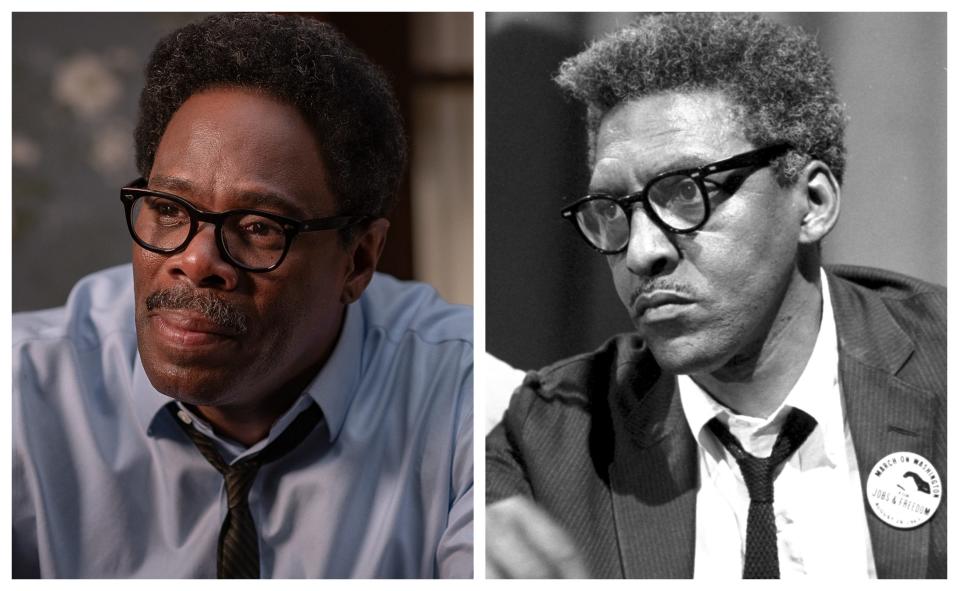
"Rustin," which counts Barack and Michelle Obama among its producers, charts the exhaustive work that went into assembling the march, which was attended by more than 250,000 people.
“It was one of the things that was very important to President Obama,” Wolfe says. He wanted to highlight “the thoroughness and level of organization that is required when you’re putting on something that monumental. That was very important to him, because it’s all in the details.”
So how much of "Rustin" is true? We spoke to Wolfe about the real history behind the Oscar hopeful:
What was Bayard Rustin's relationship with Martin Luther King Jr.?
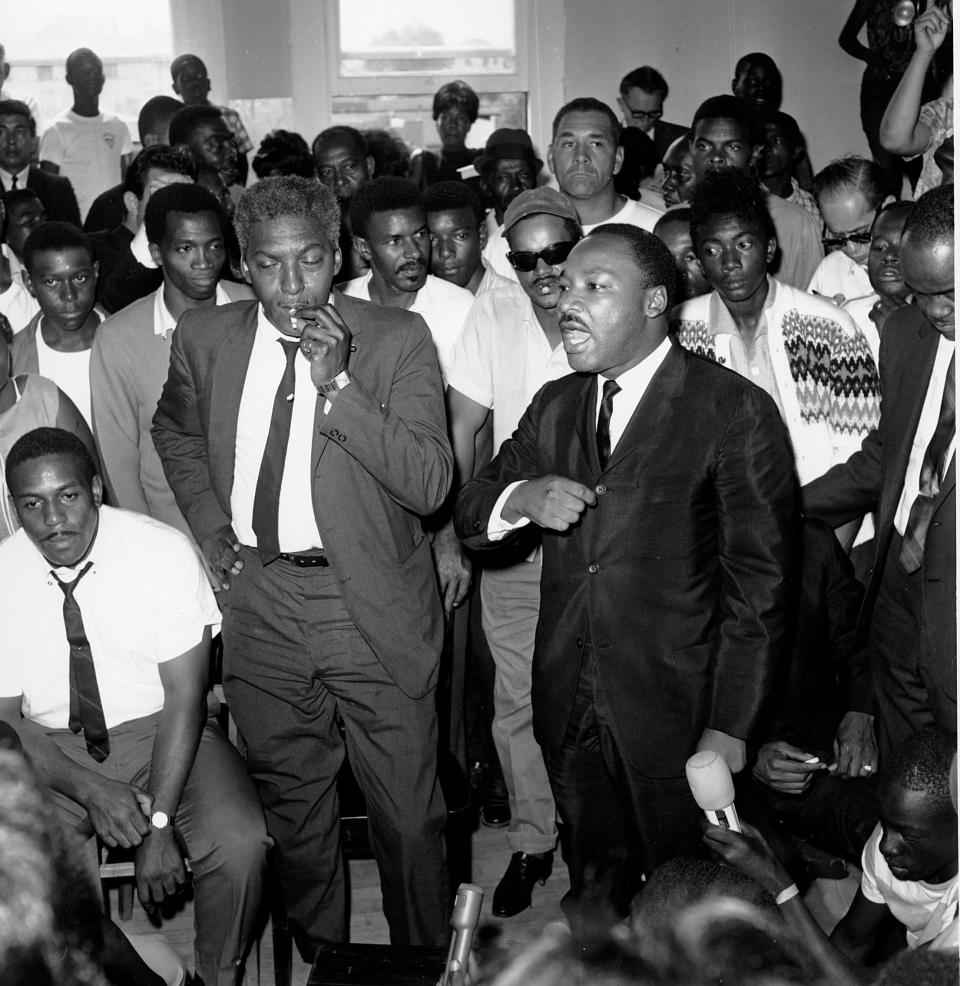
A throughline in the movie is Rustin's close friendship with King, who temporarily distanced himself from Rustin after news outlets ran "slanderous rumors" that they were having a love affair. ("He's not my type," Rustin jokes early in the film.)
"J. Edgar Hoover had (misrepresented) a photograph of Martin Luther King Jr. in the bathtub and Bayard sitting on the toilet fully clothed," Wolfe says. "Hoover was clearly obsessed with what all Black leaders were doing in their sex lives, but that's between him and his psychiatrist."
Did King actually come to Rustin's defense after his 'morals charge?'
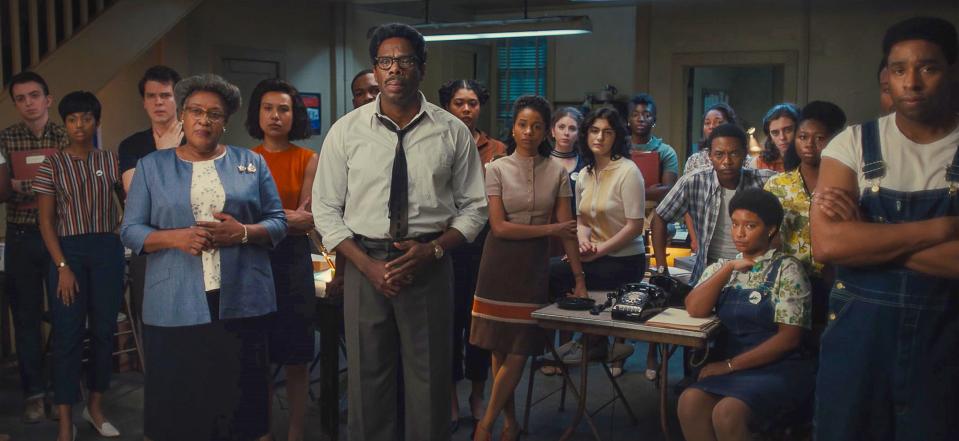
South Carolina Sen. Strom Thurmond denounced Rustin, calling him a "sexual pervert" and bringing national media attention to his 1953 arrest for having sex with two men in a parked car. In the movie's emotional climax, King and other march organizers come together to publicly vouch for Rustin's character.
The tearful scene is somewhat true, Wolfe says. “It was more casual. It wasn’t as formally organized. The thing which is true is that Strom Thurmond did announce (Rustin's arrest record) less than a week before the March on Washington, hoping that it would derail the entire march. So the exposing of it and the timing of it is completely accurate."
Were Rustin's love interests Tom and Elias real people?
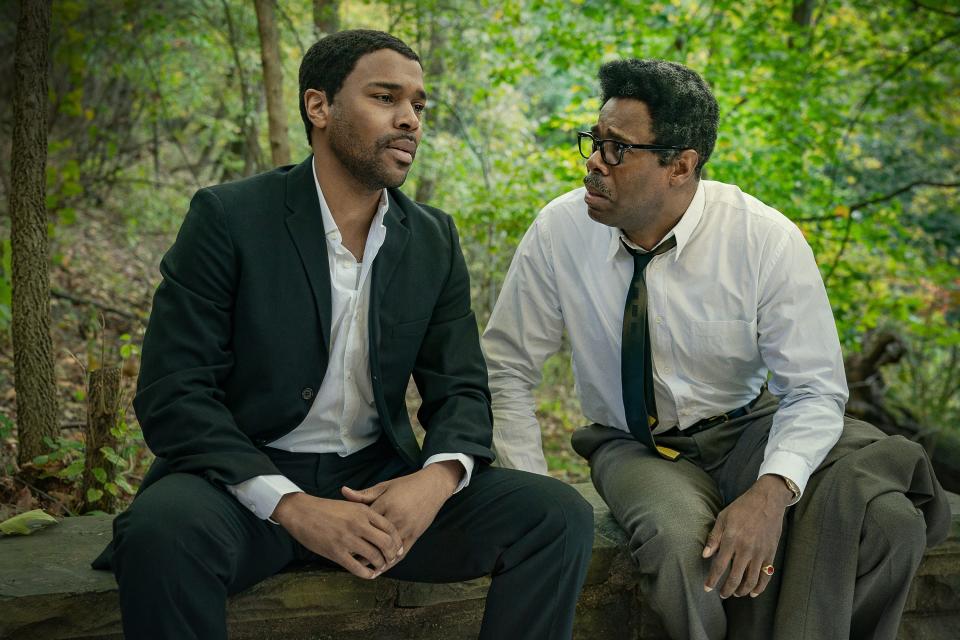
Along with his tireless efforts as a community organizer, the movie explores Rustin's romantic relationships with fellow activist Tom Kahn (Gus Halper) and Elias Taylor (Johnny Ramey), a married pastor.
Although Kahn was real, "Elias is a creation," Wolfe says. "I really appreciate the character, because it affords you the chance to see how liberated and free Bayard was, versus the typical dynamic that would have existed in 1963 of a young, promising Black leader who was in the closet.”
Who were the women behind the March on Washington?
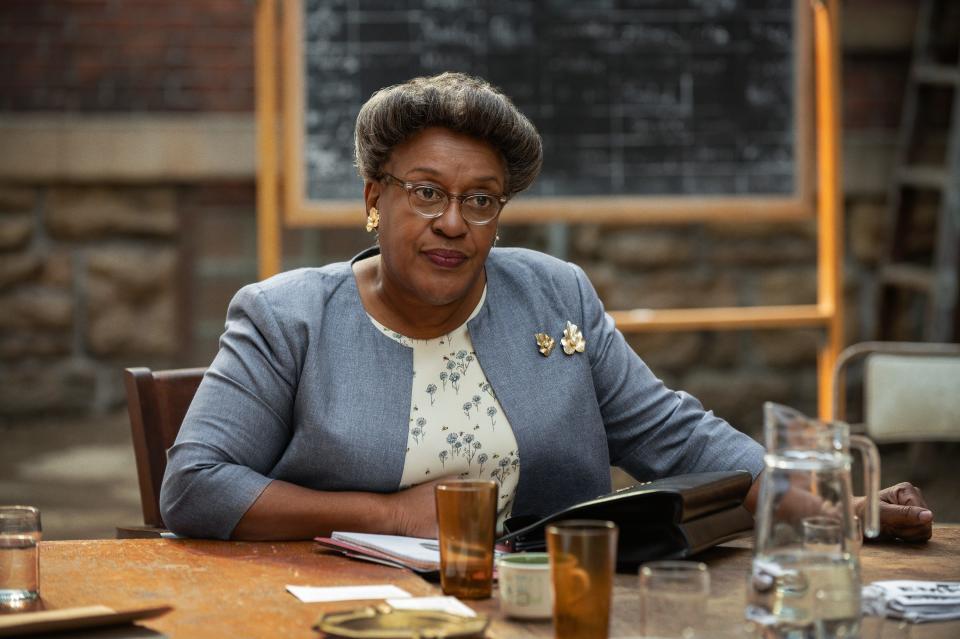
The film shines a light on female civil rights leaders such as Ella Baker (Audra McDonald) and Dr. Anna Hedgeman (CCH Pounder), who questions why more women aren't allowed to speak at the march.
“A number of women were disillusioned, because the only people who were allowed to speak were the heads of organizations,” Wolfe says. “Jo Ann Robinson organized the Montgomery bus boycott, but King gets all the credit because he was a phenomenal speaker and sort of the poster boy. Not to dismiss what he contributed, but it was put together by women. So it’s very important to acknowledge" their roles.
Who does Chris Rock play in the 'Rustin' Netflix movie?
The comedian makes an impressive dramatic turn as NAACP leader Roy Wilkins, who routinely butts heads with Rustin in the film. In real life, Wilkins worried about associating with Rustin because of his sexuality, as well as his ties to the Young Communist League two decades earlier.
"I read about a conversation between the two of them where (Wilkins) said, ‘It’s not that I don’t like you. I just don’t want to be connected to you,'" Wolfe says. For many Black men and women, the thinking was that "you are responsible for every single thing that every single Black person does: good, bad, right or wrong. So the fact that Bayard had been a Communist, which he did denounce, and the fact that he was gay was very complicated. There was the belief that the white press would use that to malign all Black people."
Did Rustin actually play the lute?
In a lighter moment at Rustin's apartment, the film touches on the fact that he was an accomplished singer and instrumentalist who recorded several albums.
“To this very day, you can go and buy ‘Elizabethan Songs and Negro Spirituals,’” Wolfe says. “He was also briefly on Broadway in a musical called ‘John Henry.’ So he had this performer identity as well.”
This article originally appeared on USA TODAY: Who was Bayard Rustin? Netflix movie tells true story of MLK Jr. aide

